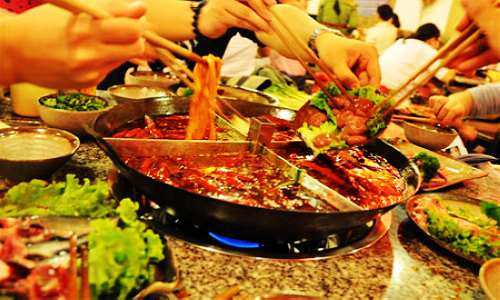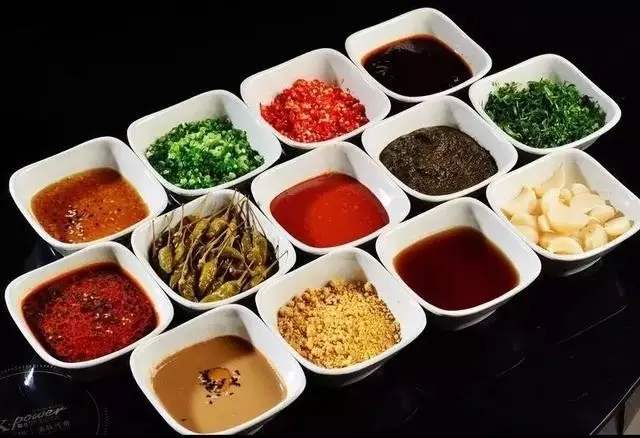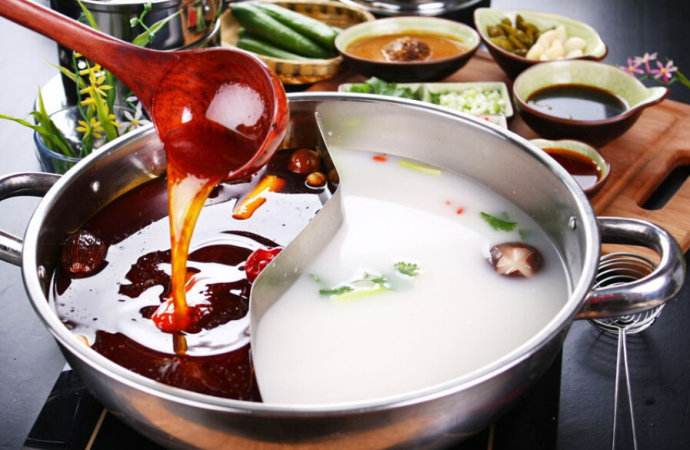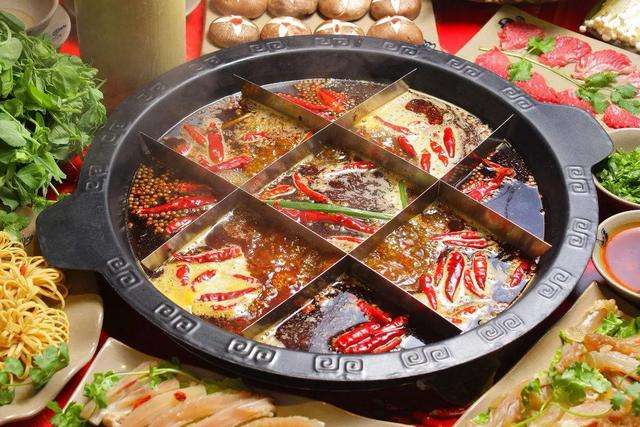As an indispensable part of the Chinese culture, Chinese cuisine enjoys unparalleled reputation around globe for it includes not only cuisines originating from the diverse regions of China, but also those from Chinese people in other parts of the world.
As our global village becomes more and more integrated, Chinese cuisine and Chinese restaurants have scattered to every nook and cranny of the world like dandelion seeds. Among all Chinese cuisines that deliver incredible sensual pleasures to diners, hotpot usually comes out on top as the one that best represents "flavors of China". In New York, London, Munich and other cosmopolitan cities, long queues can be seen outside popular hotpot restaurants.
Chongqing hotpot and Sichuan hotpot are two of the most famous Chinese hotpot dishes, offering different layers of spiciness.
Many foreigners describe their first encounter with the “spicy" hot pot as an "unforgettable adventure". However, due to the shortage of authentic ingredients and the lack of professional chefs, the hotpot dishes you have had in your countries probably cannot be characterized as an authentic hot pot cuisine. If you could come dining both of the hot pot dishes, you would spot the differences between authentic Chongqing hotpot and Sichuan hotpot, apart from their spicy nature.

The fire-breathing Chongqing hotpot can take spiciness to a whole new level as begin to have the dish. To make traditional butter soup/broth for Chongqing hotpot soup/broth base some essential ingredients are needed, such as Pi County spicy bean paste, Yongchuan tempeh, Ganzi butter, Hangyuan pepper to highlight the numbing and spicy flavors.
Chengdu hotpot however, is quite different in the sense that it is relatively less spicy. The extensive use of a variety of spices for its soup/broth base, not only highlights the aroma of the hotpot but also help neutralize spiciness.

Chongqing hotpot gives off a wonderful aroma, thanks to the adoption of butter. The aroma of butter can be found in different kinds of soup/broth base of Chongqing hotpot.
Chengdu hotpot, on the other hand, doesn't contain butter at all. Instead, Chengdu hotpot features vegetable oil, which is also known as rapeseed oil and salad oil. That is why it has less of a strong meat flavor compared with Chongqing hotpot.

For the Chongqing-styled hotpot, a flavor plate means nothing but a plate of pure sesame oil with a little garlic paste and chopped onion or cilantro. But for the Chengdu-styled hotpot, things can be a little bit complicated. Apart from the ingredients mentioned above, people can also add some oil, bean paste and soy sauce to the dipping sauce.
By far the most popular option is a flavor plate which consists of sesame oil and optional extras like oyster sauce, vinegar, garlic, spring onions and coriander because it somehow compliments the spicy and numbing taste of the hotpot.


While Chongqing hotpot uses nine-compartment pot for individualized cooking, Chengdu hotpot features Yuanyangguo, a divided pot of spicy and non-spicy in a yin-yang presentation.
In addition, the two are also different in terms of their places of origin and the decoration styles adopted. For a better understanding of the differences between the two, you'll have to come to China yourself.

As one of leading educational agencies offering top-notch consulting service to international students intending to study in China, NHC has a number of partner universities in Chongqing and Chengdu, such as Chongqing University, Chongqing University of Posts and Telecommunications, Chongqing Normal University, Southwest University of Political Science and Law, University of Electronic Science and Technology, Southwestern University of Finance and Economics and Sichuan Agricultural University. Each year, with the help of NHC, a large number of global talents are admitted to those elite universities among which up to 80% are offered a full scholarship.
Come and talk to us now if you are interested in the culture and cuisines of Sichuan and Chongqing.